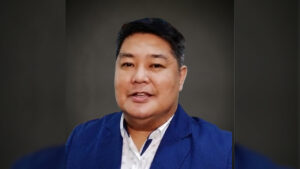Honoring Enrico P. Villanueva

It was Feb. 25, the second day of the Supreme Court (SC) oral arguments for the petitions against the PhilHealth fund transfer, when Rico Villanueva left this earth for good.
It is almost poetic — tragic, even — that on a day meant for defending the Filipino people’s right to health, we lost someone who stood for what is right and championed the cause of protecting PhilHealth (Philippine Health Insurance Corp.) funds from predation.
Rico, a Senior Lecturer at the Department of Economics of the University of the Philippines Los Baños (DE-UPLB), was among the voices of dissent against the PhilHealth fund transfer. He became an important figure in igniting the discourse on the fiscal and actuarial aspects of the issue. He shared his well-founded criticisms and financial analysis of the issue on social media (X and Facebook) where he had amassed influence as a respected monetary and fiscal expert.
The first time that civil society advocates consulted him about the PhilHealth issue, we were at his office in UPLB, and he was clearly exhausted from a long day of lectures. Despite this, Rico was accommodating and generous in sharing his insights into PhilHealth’s financial position. He even shared his frustration that no one seemed to point out the true financial situation of PhilHealth — one that stands in stark contrast to the claims of the state health insurer having “excess” funds.
On Oct. 29, 2024, we formally visited the Department of Economics in UPLB. It was a few days after Tropical Storm Kristine ravaged Luzon, and the campus was still bearing signs of the aftermath. Trees had been uprooted and branches piled along the roadside. Despite the chaos, the DE–UPLB warmly welcomed us as we sought help to understand the financial situation of PhilHealth.
During this visit, Rico explained the true financial situation of PhilHealth, noting that the claims of the Department of Finance Secretary Ralph Recto overestimated (or exaggerated) the state health insurer’s funds, and ignored its outstanding obligations to all its members of P1.163 trillion in insurance contract liabilities (ICL). Given this obligation, PhilHealth faces a deficit of P644 billion — a dire fiscal situation that was further exacerbated by the government’s order of transferring P89.9 billion of PhilHealth funds to the National Treasury.
Of this amount, P60 billion was already transferred before a temporary restraining order was released by the Supreme Court on that very same day, Oct. 29, about two hours after our meeting with Rico.
In a small open space beside the DE function room where we held our meeting, stacks of bond paper were spread out on the thin grass, left to dry under the sun. It was sort of a reminder that something the storm tried to drench and damage can still be reclaimed; we just have to expose it to the light.
And so we did.
After that meeting, efforts to enlighten the public about the true financial situation of PhilHealth began. Rico wrote a pivotal piece for AER’s Yellow Pad entitled “State of the PhilHealth fund: Claimed excess ignores reserve deficit and service gaps.” (See BusinessWorld, Nov. 4, 2024.). The article was widely shared. It debunked claims of “excess funds,” helping the public better understand the real financial state of PhilHealth and fueling wider opposition to the transfer of PhilHealth funds.
Rico also created a short video to explain the issue in a simpler, less technical way.
Now, the public is very aware of the issue. The public rejects the actions of the National Government of taking away PhilHealth funds, which is contrary to law. This issue is highlighted in the oral arguments at the Supreme Court. Associate Justice Amy Lazaro-Javier emphasized that the state health insurer is essentially on the brink of bankruptcy, given that for the past three years, its reserve funds have been significantly lower than actuarial estimates. The PhilHealth reserve fund, which Secretary Recto claims to be more than sufficient to provide benefit packages to members and their dependents, was found to be critically short of covering the insurer’s total obligations.
Rico taught us, and his students, to make use of and critically analyze government reports. “Actually, I’m just using PhilHealth data,” Rico told us about his findings. He keenly analyzed data and made technical and complex economic and financial topics easy to understand for the public.
Even with the gap in the provision of ICL out of the picture, the figures cited by Secretary Recto and President Ferdinand “Bongbong” Marcos, Jr. in their statements on the funds available at PhilHealth’s disposal will not be sufficient to sustain the complete rollout of crucial PhilHealth benefit packages for all Filipinos. For one, based on our calculation, the outpatient Konsulta package alone will cost at least P194 billion per year to cover the entire population, not to mention the infrastructure that needs to be in place to effectively implement this package, including health information technology. In addition, the 2023 benefit payments of PhilHealth revealed its failure to sufficiently fund the full-service coverage of benefits that contribute to the attainment of the Sustainable Development Goals (SDGs). For instance, PhilHealth covered only half of the benefits for pregnant women and a small proportion of TB patients.
Rico also lambasted the role of the DoF in the fund transfer. The DoF created a circular to implement the special provision of the 2024 General Appropriations Act calling for collection of government-owned and -controlled corporation (GOCC) funds in excess of reserves. Wrote Rico in his Yellow Pad article, “the DoF appointed itself via circular as the calculator of reserve funds, which is a case of conflict of interest. The DoF cannot be both the arbiter of excess reserves and beneficiary of collected funds. The calculation of reserves is the job of the Actuary who ideally should be independent.”
Rico was an influencer, a leader, and a mentor. His memorial service was attended by diverse sectors — bankers, professors, students, triathletes, and others — sharing stories of how Rico had touched their lives. Sorrow quietly turned into a celebration as those who loved him found comfort in knowing that, despite his abrupt passing, Rico lived a full life.
Among his many roles, we at AER remember Rico as an intellectual with unwavering commitment to serving the people. His legacy is using his expertise in finance and economics to champion controversial causes that truly matter to Philippine society — an embodiment of honor, excellence, and service to the people.
We look back at a post he shared on his X account regarding the PhilHealth case: “I hope accountants, actuaries, and health economists will speak up. Please amplify the truth.”
We at AER sincerely hope and pray that Rico’s pursuit of the truth will prevail. While he may not witness the SC’s decision on the case, the impact of his contributions to the discourse and the young minds he has influenced is a victory in itself.
Rosheic Sims and Dhelyn Dela Cruz are researchers for Action for Economic Reforms’ health and fiscal policy team.




